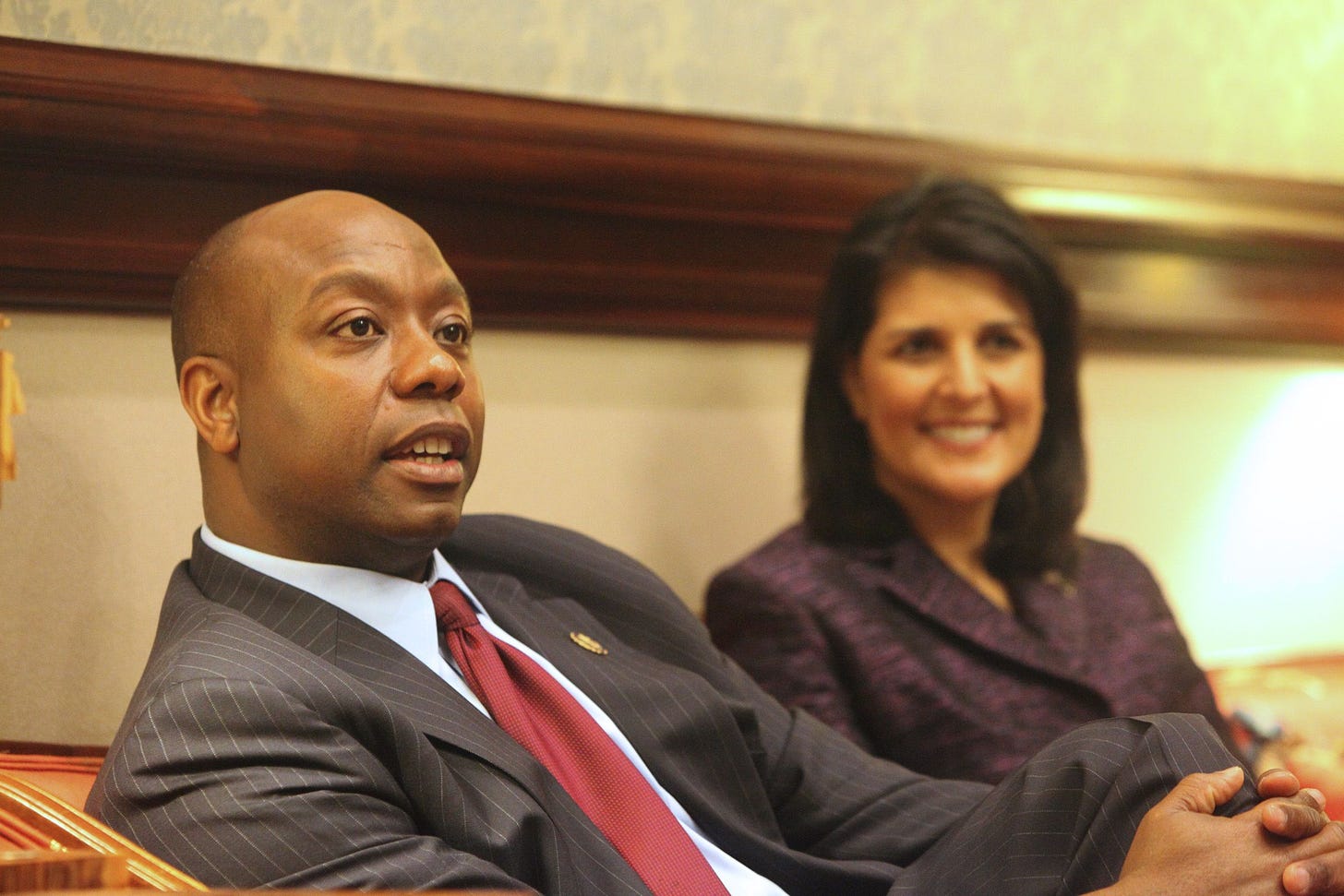Talking About Not Talking About Race
The advantage that Republican candidates of color have in the presidential nomination contest
Three Republican presidential candidates stopped in Iowa last week to deliver speeches and meet potential supporters and caucus goers. As you may have noticed, none was white. There are a few reasons for this and a few lessons we can learn from this.
(Note: I’m writing this from Des Moines, where I’ve been based for a few days and interviewing some folks involved with Republican caucus politics. These thoughts emanated from some of these discussions.)
Former South Carolina governor Nikki Haley stopped by right after her official announcement last week. In that announcement statement, she talked about and defended America’s racial progress. “Some think our [founding] ideas are not just wrong, but racist and evil,” she said. “Nothing could be further from the truth.” She added that she grew up as an Indian-American in South Carolina cognizant of feeling “different,” but was determined “not to focus on the differences but the similarities.”
South Carolina Senator Tim Scott, meanwhile, spoke at the Polk County Republican Party’s Lincoln Dinner, claiming that “We have politicians who want to say that grievance is our future, not greatness…. I stand here to tell you, Not on my watch!” He spoke of the bigotry his parents and grandparents experienced but described the U.S. as the greatest country in the world.
Finally, the little known Vivek Ramaswamy stopped in Urbandale to condemn “wokeism” and the “new secular religion” holding that “America is a systemically racist country.”
Obviously there’s a lot of overlap in these speeches. And of course, all three are running for the presidential nomination of a party that is very white and has remained so even as the nation has become more racially diverse. And in a state that is one of the nation’s whitest.
This is not deterring them from running. Indeed, it may give them some advantages over other candidates.
Notably, the candidates do not ignore race when they speak. Indeed, they lean in to their identity in their stump speeches, but use it as a claim to authority when they maintain that America has grown past its racial divisions. It is one thing for a white person to state that America isn’t racist. It is quite another to hear that from a person of color who became Senator or Governor of the same state that produced Strom Thurmond, Benjamin Tillman, and John C. Calhoun. And it is deeply validating to the ears of a conservative white voter.
But beyond that, racial identity offers these candidates something that other candidates have struggled to articulate: a reason to run against Donald Trump for the nomination.
One notable thing about the GOP race so far is that there are quite a few candidates who are or will be challenging Trump, but very few are directly criticizing him. Indeed, they’re paradoxically praising him even while challenging him. And for good reason.
Should they attack his policies? Those are popular among Republican voters. Should they attack his demeanor? Then they just sound like the DC chattering classes who find Trump uncouth. What these candidates want to do is position themselves as the heir to Trump who can go beyond what he accomplished in office.
Implicit in speeches by Haley, Scott, and Ramaswamy is the argument that even if they don’t think Trump is racist, they know many others do, and that this perception hurts the party and limits its appeal.
Thus a strong candidate of color can argue that they can take the Trump agenda further without the blowback. They can end affirmative action, attack critical race theory in schools, end early voting and add voter ID requirements, defend police, and more, without being branded bigots.
For a party that has won the presidential popular vote only once in the past 35 years, that isn’t nothing.






I think you give these candidates more credit than they deserve in their attitude towards Trump. Their message is basically "my opponent (Trump) walks on water but vote for me anyway." Haley even apparently had Trump's blessing to enter the race. I seems they are really running to divide the non-Trump vote and home Trump will reward them by choosing one of them as his VP nominee.